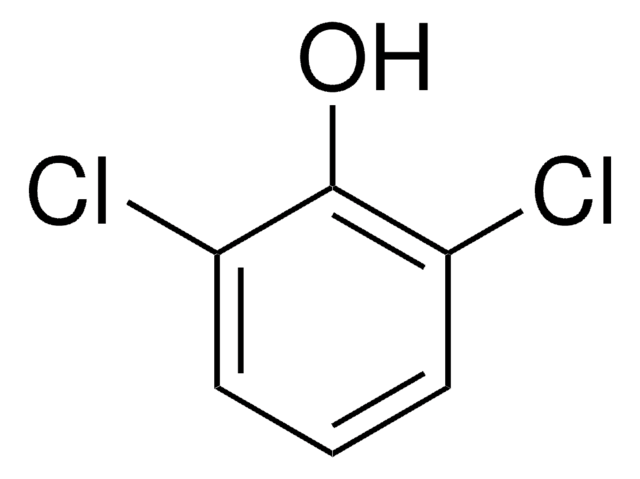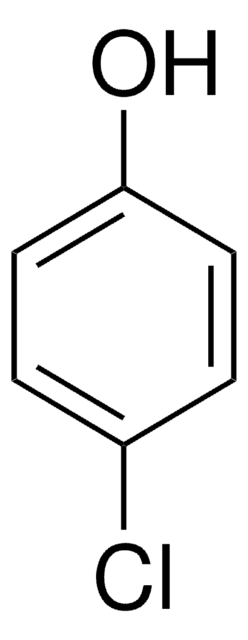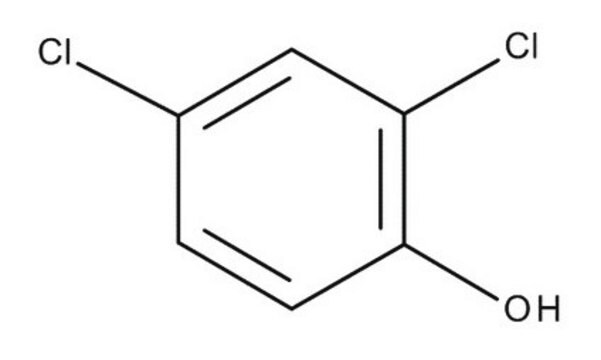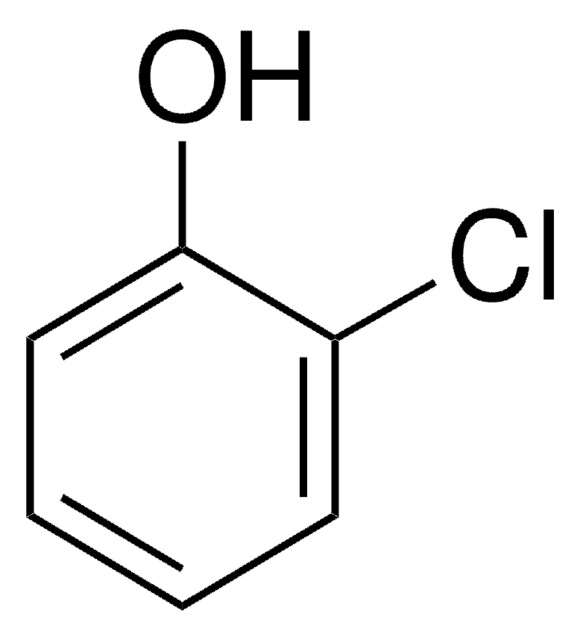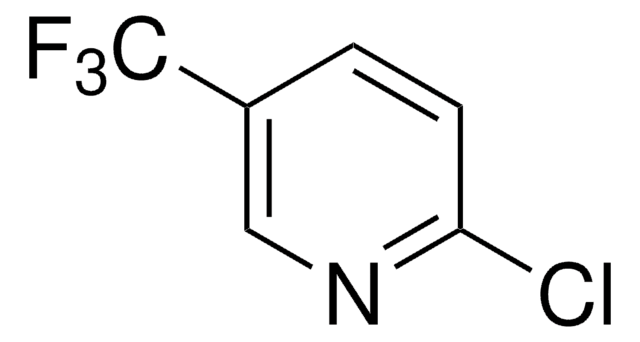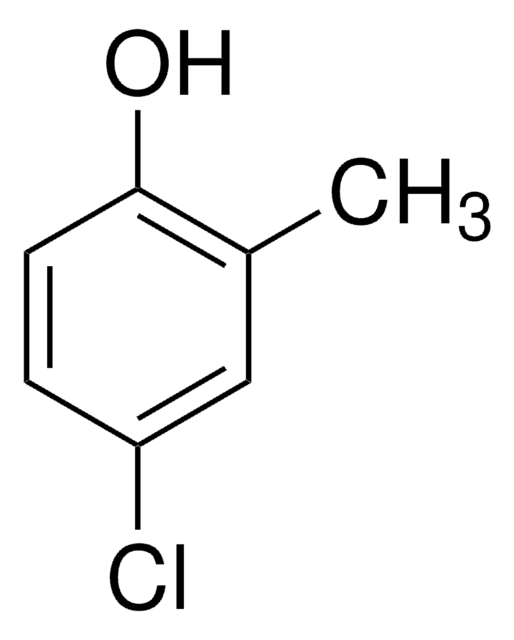105953
2,4-Dichlorophenol
99%
Sinonimo/i:
1,3-Dichloro-4-hydroxybenzene, 2,4-DCP, 2,4-Dichlorophenic acid, 4,6-Dichlorophenol
About This Item
Prodotti consigliati
Livello qualitativo
Saggio
99%
Stato
solid
P. ebollizione
209-210 °C (lit.)
Punto di fusione
42-43 °C (lit.)
Solubilità
methanol: soluble 1g in 10ml
ethanol: soluble 50 mg/mL
Gruppo funzionale
chloro
Stringa SMILE
Oc1ccc(Cl)cc1Cl
InChI
1S/C6H4Cl2O/c7-4-1-2-6(9)5(8)3-4/h1-3,9H
HFZWRUODUSTPEG-UHFFFAOYSA-N
Cerchi prodotti simili? Visita Guida al confronto tra prodotti
Categorie correlate
Descrizione generale
Applicazioni
Avvertenze
Danger
Indicazioni di pericolo
Consigli di prudenza
Classi di pericolo
Acute Tox. 3 Dermal - Acute Tox. 4 Oral - Aquatic Chronic 2 - Eye Dam. 1 - Skin Corr. 1B
Codice della classe di stoccaggio
6.1D - Non-combustible acute toxic Cat.3 / toxic hazardous materials or hazardous materials causing chronic effects
Classe di pericolosità dell'acqua (WGK)
WGK 3
Punto d’infiammabilità (°F)
231.1 °F - closed cup
Punto d’infiammabilità (°C)
110.6 °C - closed cup
Dispositivi di protezione individuale
dust mask type N95 (US), Eyeshields, Faceshields, Gloves, type P2 (EN 143) respirator cartridges, type P3 (EN 143) respirator cartridges
Scegli una delle versioni più recenti:
Possiedi già questo prodotto?
I documenti relativi ai prodotti acquistati recentemente sono disponibili nell’Archivio dei documenti.
I clienti hanno visto anche
Global Trade Item Number
| SKU | GTIN |
|---|---|
| W354309-10KG | |
| W354309-10KG-K | 4061837530258 |
| W354309-1KG-K | 4061837530265 |
| W354309-SAMPLE-K | 4061837530272 |
| W354309-1KG | |
| W354309-5KG | |
| W354309-5KG-K | |
| W354309-SAMPLE | |
| 105953-250G | 4061838673329 |
| 105953-100G | 4061838673312 |
| 105953-1KG | |
| 105953-5G | 4061838673343 |
Il team dei nostri ricercatori vanta grande esperienza in tutte le aree della ricerca quali Life Science, scienza dei materiali, sintesi chimica, cromatografia, discipline analitiche, ecc..
Contatta l'Assistenza Tecnica.